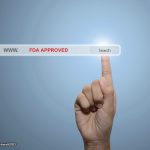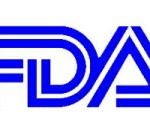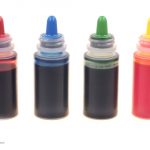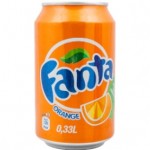The FDA has revoked the regulation allowing brominated vegetable oil (BVO) in food. This oil is modified with bromine. He agency concluded that the intended use of BVO in food is no longer considered safe. A series of studies conducted in collaboration with the National Institutes of Health found the potential for adverse human health effects from the use of brominated vegetable oil. The FDA announced plans to ban this product last year. And the state of California banned BVO along with other compounds before the FDA announced their decision. Brominated vegetable oil was removed from the Generally Regarded as Safe (GRAS) list in 1970. It was used in small amounts to keep the citrus flavoring from floating to the top in some beverages. Few beverages in the United States contain … [Read more...]
FDA to Publish Final Rule on GRAS; Experts Object
The FDA is publishing its final rule on GRAS (generally recognized as safe) substances in human and animal food tomorrow. The rule "amends and clarifies the criteria in our regulations for when the use of a substance in food for humans or animals is not subject to the premarket approval requirements of the FD&C Act because it is generally recognized as safe under the conditions of its intended use." Ingredients on the GRAS list don't need to be approved by the FDA before they are added to foods, but they must adhere to the same safety standards as approved additives. The GRAS list includes substances that were in use in foods before 1958, or through scientific procedures. But food safety experts are concerned about the rule and think that it gives companies the power to make … [Read more...]
Panera Removing Additives from Food
The restaurant chain Panera is expanding the list of additives they will no longer have in the food they sell. By the end of 2016, all of the food it offers for sale will be free of artificial colors, sweeteners, and flavors. Panera just published a "No No List" of additives they are forbidding in their products. Some of those ingredients include nitrates/nitrites, aspartame, theobromine, BHA, BHT, and artificial colors. The restaurant is striving to serve clean food to its customers. Environmental Working Group, a food advocacy organization, is praising Panera's decision. Ken Food, EWG president said in a statement, "with this bold commitment, Panera is showing impressive leadership in the restaurant industry to give consumers what they increasingly demand: food with fewer … [Read more...]
EWG Launches Petition to Remove Propyl Paraben
Environmental Working Group (EWG) has launched a petition to remove propyl paraben, an endocrine disruptor, from the country's food. This ingredient is in 49 processed foods, including Sara Lee cinnamon rolls, Weight Watchers cakes, Energy Club nuts and chocolate blend, Entenmann's Coconut Crunch Donuts, Setton Farms' trail mix, and La Banderita corn tortillas. Propyl paraben is on EWG's Dirty Dozen Guide to Food Additives. The FDA has listed propyl paraben as GRAS, or "generally recognized as safe." But there is evidence that propyl paraben disrupts the endocrine system, which regulates metabolism, sexual function, sleep, reproduction, and mood. A 2010 study at the CDC found that 92.7% of Americans tested had propyl paraben in their urine. Researchers at the Tokyo Metropolitan … [Read more...]
Dirty Dozen Food Additives Guide Published
Environmental Working Group has published its first-ever "dirty dozen" guide to food additives. That organization has a "dirty dozen" list of produce that contains large amounts of pesticides and herbicides. This list is for label readers; it tells you which additives to avoid. Nitrates and nitrates are first on the list; they are chemicals used in cured meats to make the product pink and add flavor. Nitrites have been linked to stomach cancer and may be associated with brain and thyroid cancers. Scientists at the World Health Organization have declared that these chemicals are probable human carcinogens. Potassium bromate is next on the list. This chemical strengthens wheat doughs and help them rise during baking. It is listed as a known carcinogen by the state of California. It is … [Read more...]
FDA Agrees to Finalize GRAS Rule of 1997
The FDA has agreed to finally finalize its GRAS (Generally Regarded as Safe) rule, in response to a Center for Food Safety lawsuit. For 17 years, the FDA has let corporations fast track their food additives to get products onto the market. That allowed corporations to sell products that had not been reviewed by the government to see if they are safe for human consumption. In 1958, Congress passed a law requiring the FDA to conduct "rigorous reviews" of food additives before they were put into the marketplace. Those additives were supposed to be rejected or approved based on scientific evidence. Common ingredients that were used for decades, such as sugar, were deemed "generally regarded as safe" and exempt from review. Corporations could formally petition FDA to approve a food additive … [Read more...]
Coca Cola Removes Brominated Vegetable Oil from Drinks
According to the AP, Cocoa Cola and PepsiCo are going to remove brominated vegetable oil (BVO) from all of its drinks that contain it. That compound, which is patented as a flame retardant, is not approved for use in the European Union or Japan. It is found in Fanta, Powerade, Mountain Dew, and Fresca, along with some beverages sold as fountain drinks. This is a global change. BVO was removed from Gatorade in 2013. A 2012 Change.org petition started by Sarah Cavanagh, a teenager from Mississippi, started the interest in the chemical and the pressure on PepsiCo. Brominated vegetable oil is used as a stabilizer for flavor oils in the beverages. It is a vegetable bonded with bromine, an element, that keeps the citrus oils suspended and mixed into the liquid and gives the beverage its … [Read more...]
Center for Food Safety Sues FDA Over Food Additives
The Center for Food Safety has filed a lawsuit against the FDA over food additives. The suit asks the Court to vacate the government's 1997 proposed rule on generally recognized as safe (GRAS) additives that lets corporations determine if a substance is GRAS or not. CFS wants the agency to go back to its old process of having corporations petition FDA to approve a new additive based on scientific studies. That 1997 rule has never been finalized. Food Poisoning Bulletin has told you about this issue before. CFS says that because the government is "indefinitely operating under a proposed rule in lieu of promulgating a final rule, FDA has deprived the public of the vital procedural rights afforded by the Administrative Procedure Act." CFS says that these actions violate the APA's … [Read more...]
Study Alleges Conflicts of Interest in GRAS Determinations
When I was studying food science at the University of Minnesota, professors often mentioned the GRAS list. That list, which lists food additives that are "Generally Regarded as Safe", is used by manufacturers to choose additives to use when they are developing products. Back then, most additives on the GRAS list were included because they had been in circulation for a long time with no detectable harm to humans. But things have changed. Now additive companies submit GRAS designations as determined by their own employees or consulting firms they have hired. A new study published in the Journal of the American Medical Association alleges that people selected by manufacturers to make GRAS determinations have "conflicts of interests between their obligations to ensure that the use of the … [Read more...]
CSPI: Caramel Coloring is a Carcinogen
When you hear the word "caramel", you most likely think of a soft brown candy, made by slowly cooking sugar. But "caramel coloring" is not the same thing. That artificial ingredient, used in products such as Coca-Cola and Pepsi, is made by combining corn sugar with chemicals such as ammonium and sulfates under high pressure and temperatures. The Center for Science in the Public Interest (CSPI) is calling on the FDA to revoke the Generally Regarded as Safe (GRAS) status of caramel coloring, an ingredient found in many foods. Caramel coloring contains 4-methylimidazole (4-MI or 4-MEI), a known animal carcinogen. That compound forms when ammonium or ammonium and sulfites combine under certain conditions. It has no nutritional value and no flavor, despite its name, but simply colors … [Read more...]










